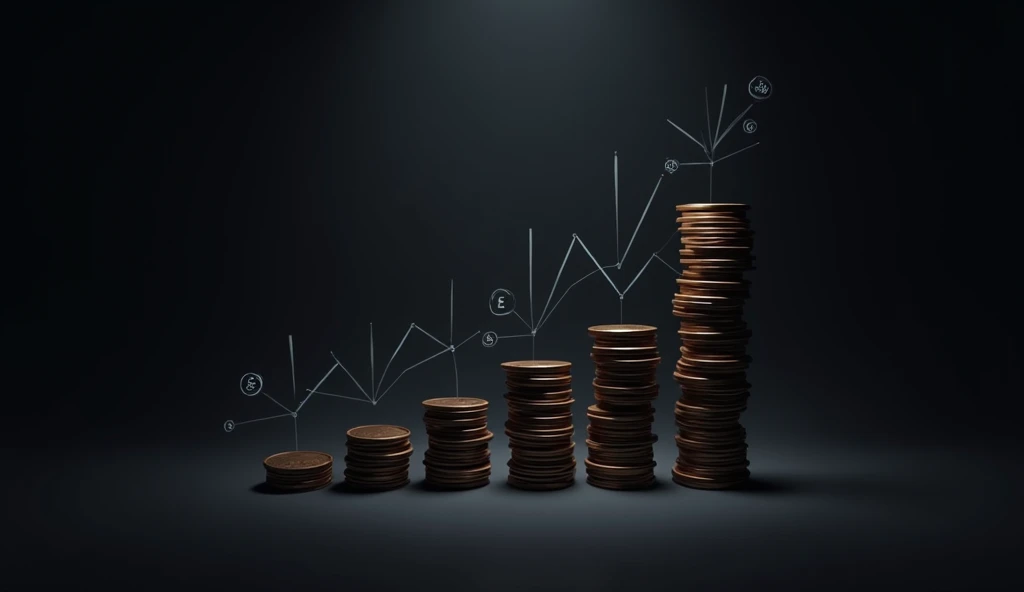
Ewolucja Systemów Ekonomicznych: Od Barteru do Blockchaina
Posted on: 2025-07-19 15:00:00
Ekonomia, barter, blockchain i te wszystkie mechanizmy, które kształtują bogactwo i władzę od wieków. Stein tu. Nigdy nie bierz systemów ekonomicznych na wiarę – myśl głęboko, analizuj, weryfikuj u źródła. To nie kronika, to lekcja o kontroli. Wcześniej mówiliśmy o ewolucji społeczeństw; dziś idziemy w kasę – ewolucja systemów ekonomicznych od barteru do blockchaina. Problem? Ludzie widzą gospodarkę jako chaotyczną, ignorując ewolucyjne korzenie. Rozwiązanie? Zrozum przemiany – adaptuj się lub zbankrutuj w nowym świecie.
Barter i wczesny handel: przed 3000 p.n.e. wymiana bezpośrednia – rolnik dawał zboże za mięso myśliwego. Działało w małych, zaufanych grupach, ale padało przy złożoności. Archeologiczne znaleziska, jak obsydianowe narzędzia wymieniane w Mezopotamii, pokazują wczesne sieci mimo ograniczeń. Przodkowie adaptowali się, tworząc podstawy handlu.
Narodziny pieniędzy: około 1200 p.n.e. towarowe pieniądze – muszle, sól, metale – standaryzowały wartość. W 600 p.n.e. Lidyjczycy wybili pierwsze monety, boostując efektywność. Papierowe pieniądze w Chinach Tang (618-907 n.e.) ułatwiły daleki handel i kontrolę państwa. Ewolucja to uproszczenie – od rzeczy do symboli.
Feudalizm i merkantylizm: średniowieczna Europa wiązała bogactwo z ziemią i pracą, chłopi dla panów. Renesans przyniósł merkantylizm (XVI-XVIII w.), narody gromadziły złoto przez nadwyżki handlowe. Kompania Wschodnioindyjska Anglii to przykład kolonialnej eksploatacji – ewolucja ku globalnym imperiom.
Kapitalizm i industrializacja: XIX wiek zrodził nowoczesny kapitalizm. 'Bogactwo narodów' Adama Smitha (1776) chwalił rynki nad kontrolą. Fabryki, koleje napędzały produkcję masową, banki i giełdy – jak NYSE z 1792 – finansowały wzrost. Przerwy bogactwa posiały socjalizm jako kontrę.
Era cyfrowa: koniec XX w. wprowadził transakcje cyfrowe – karty, bankowość online. W 2009 Bitcoin uruchomił blockchain, decentralizując zaufanie. W 2025 fintech jak kryptowaluty przekraczają 6 bilionów dolarów w e-commerce. Stein widzi: ewolucja ku bezintermediarowym systemom.
Co dalej? Systemy mogą ewoluować ku rynkom AI czy powszechnemu dochodowi podstawowemu, gdy automatyzacja zabija miejsca pracy. Blockchainowa przejrzystość redefiniuje zaufanie, jak monety tysiące lat temu. Adaptuj się do decentralizacji – to przyszłość bogactwa.
Pozdrawiam,
Hipokryta Stein
Back to Blog